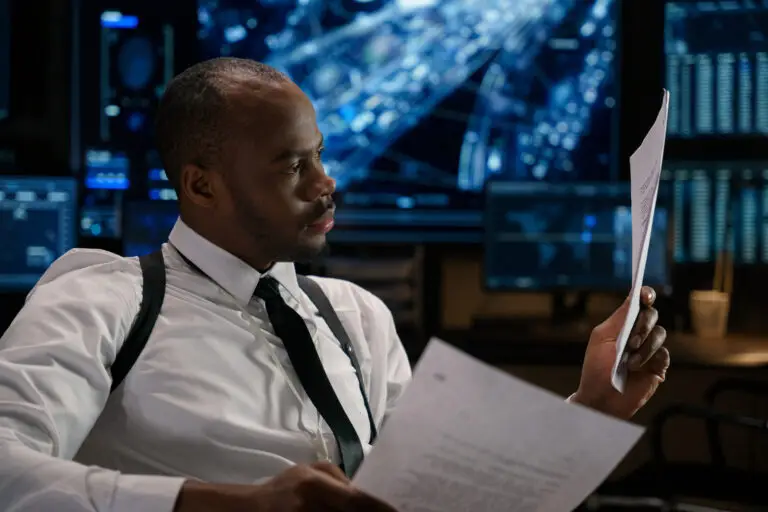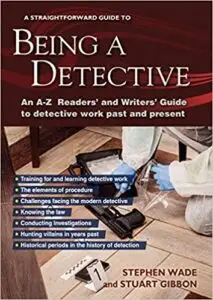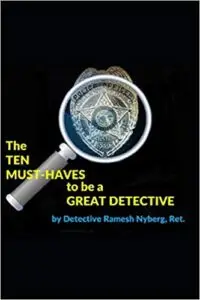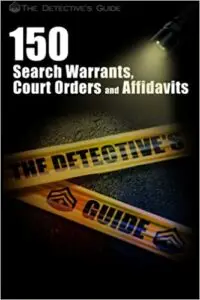
You’ll work with police officers who are excellent investigators, but they will never capture a detective’s badge.
~ Barry M. Baker Tweet

Detective Lieutenant Barry M. Baker (ret.) is a 32 year veteran of the Baltimore Police Department.
Becoming a detective is the goal of many new police officers. It’s a worthy position to pursue, but it’s not as easy as some might believe. You’ll work with police officers who are excellent investigators, but they will never capture a detective’s badge.
Detective status is a prestigious position, and it provides a means to achieve results commensurate with your investigative abilities. You need not be a detective to develop investigative skills, because you begin that process your first day in patrol. Patrol is the classroom and practical laboratory for becoming a detective.
You might think your education or prior investigative experience would speed you toward becoming a detective, but you’d be incorrect. It’s great having education or experience when beginning any career, but the benefit is negligible for a police specialized unit. A police department is a government entity, and government doesn’t operate like private industry. No profit motive exists in government, so education and prior experience doesn’t count for much beyond your personal development.
Scenario
You’re a detective in an 800 member police department. You’ve been with the department for ten years, and you’ve been a homicide detective for the last five years. Your wife works in private industry, and she’s landed a high paid executive position with a company in another city. The other city has a police department with a similar number of sworn positions as your department.
You’ve done your research, and the other police department is willing to offer you a lateral transfer. However, there are some drawbacks. The other department will only credit you with five years of service toward retirement, and forget about a detective’s badge. You’ll have to complete an abbreviated police academy training course to certify you as a police officer in that state. Following your academy training, you’ll be assigned to patrol to begin your new police career. Your goal of becoming a detective will have to start all over again.
Police departments are similar in every respect, but they maintain their individual identities and traditions. There are over 18,000 police departments in the United States, so it’s important that you choose wisely from the beginning. While circumstances often dictate actions, you’ll want to avoid moving from one police department to another.
Office Politics and Becoming a Detective
It shouldn’t surprise anyone that office politics play a huge role in assignments to any specialized unit. For example, your police chief’s son joins your department, and he enters patrol following academy training just like everybody else. What should surprise you is the chief’s son spending more than a year and a day in patrol, before he’s on track to becoming a detective.
In fairness, the chief’s son may be an outstanding officer, but would you believe that’s the reason for his reassignment? Don’t believe for a minute that any police department is not significantly influenced by politics and personal connections. If you’re serious about working toward becoming a detective, you’ll have to embrace the politics and personal connections paradigm to some degree.
Hard Work Helps
I worked with a young officer in Baltimore’s Eastern District who’s only goal was to become a homicide detective. The Eastern District was the place to be since homicides were plentiful. That officer spent every minute of free time developing information on open homicide cases. He would race to be the first officer on the scene of any call that could potentially be a homicide. Being the first to arrive, he would become the primary officer and a permanent part of the case going forward.
He spent a lot of his own time at the Homicide Unit sharing information he’d developed. This officer did it the right way, because all of his information sharing was high quality. He didn’t make a nuisance of himself. When he showed up at the Unit, the detectives knew Gary was going to make some homicide detective look good. As I recall, it took him nearly five years to get his spot in Baltimore’s premiere detective unit. He would go on to complete his police career as one of Baltimore’s top homicide detectives.
I always shunned police department politics, and I couldn’t get close to becoming a detective. However, things do happen. For the last five years of my career, I was a detective lieutenant in command of three detective sergeants and sixteen detectives.
Related Content for Becoming a Detective
Advertisements





